What we do
OUR WORKS
We run shelter homes, schools and a reasonable mess that helps such needy young people. We also have our helpline offices that can be approached at any time.
What we care for
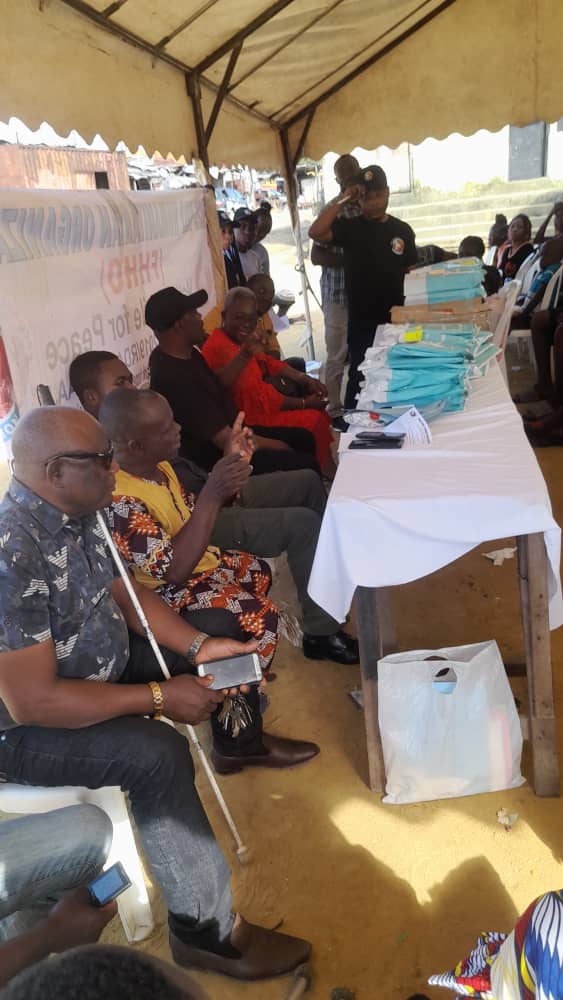
- Healthcare Access Initiatives
Providing medical care, health education, and access to treatment for disadvantaged communities
2.Food Security and Nutrition Programs
Offering food assistance, nutritional support, and sustainable agriculture initiatives to vulnerable populations
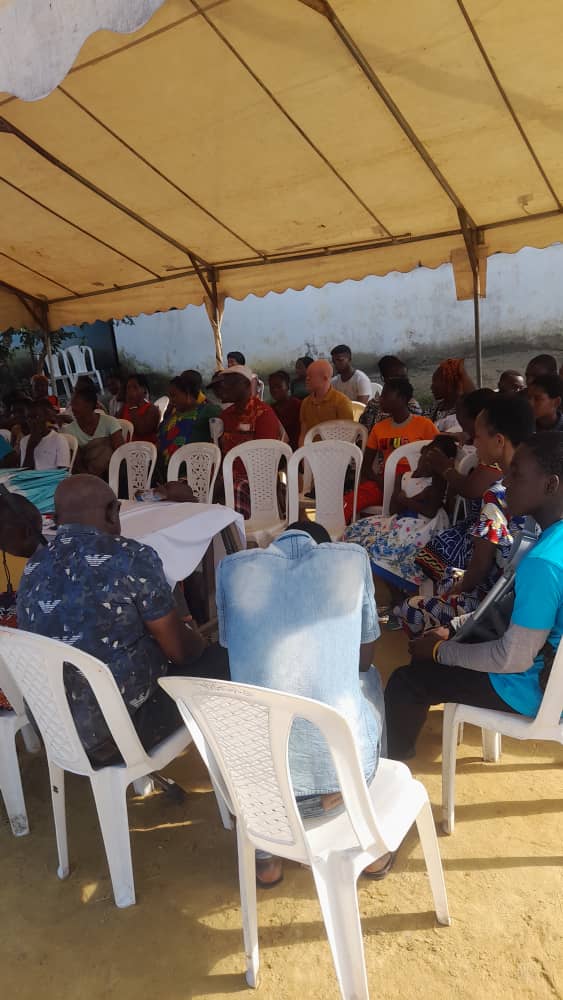

3.Education and Skills Development
Supporting educational programs, vocational training, and economic empowerment initiatives for disadvantaged individuals and communities.
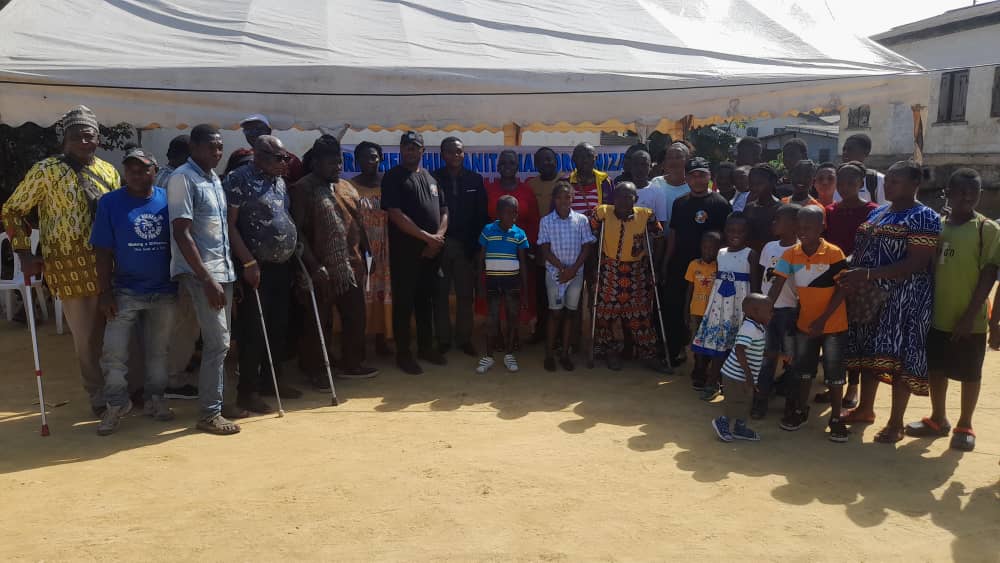
4. Disaster Relief and Recovery
Providing critical assistance, relief supplies, and support services to communities affected by natural disasters and crises
5. EDUCATIONAL ASSISTANCE TO SOME INTERNALLY DISPLACED CHILDREN (IDC), ORPHANS, CHILDREN WITH DISABILITIES AND STUDENTS IN NEED OF HELP
Introduction
The socio-economic and political crises in the North West and South West Regions of Cameroon have resulted in the displacement of thousands of children, depriving them of their right to education and the general financial crisis due to the poor economic situation in the country as a whole that has made many parents not able to send their children to school. Additionally, marginalized and vulnerable children in the regions face significant barriers to accessing quality education. In response, our organization launched an Educational Assistance Program to support these children. As part of our organization’s efforts to support education for all, the organization distributed didactic materials on the 16th of September 2024 to some orphans, internally displaced children, children with disabilities and students in need of help in Jakiri in the North West Region and at the head office of the organization located at Garage Weno-Bonaberi-Douala in the Littoral Region of Cameroon. The goal of this initiative was to provide these children with the necessary tools to access quality education and improve their learning outcomes. During the event, the National Coordinator of Free Help Humanitarian Organization, (Mr. Isaac Tari Fombe) told the beneficiaries to make use of the didactic materials by producing good results, be obedient to their parents/guardians. He also told the parents/guardians to followup the children so that they take their studies seriously.
In response and on behalf of the parents/guardians and beneficiaries, (Madame Tangala Florence) who is a humanitarian thanked the National Coordinator for the assistance; that it came at that right time (a few days to the reopening of the academic year 2024/2025). She told the beneficiaries not to play with studies nor the school items for the organization had sacrificed a lot to provide them with the school needs. She told the National Coordinator that there were so many thousands of children in need and prayed the organization to seek for more assistance through partnerships, projects to continue to assist the marginalized/vulnerable.
Background
Many orphans and vulnerable children in marginalized/vulnerable communities in the North West and South West Regions of Cameroon face significant barriers to accessing education. Poverty, lack of resources, limited access to educational materials and lack of infrastructure are some of the challenges they face. Our organization recognized the need to support these children and provide them with the necessary resources to succeed in school.
Objectives
The objectives of this initiative were to:
1. Provide didactic materials to some orphans and vulnerable children to support their education in Jakiri in the North West Region and Bonaberi-Douala.
2. Improve the learning outcomes of these children by providing them with the necessary tools to succeed in school.
3. Support the development of these children and help them reach their full potential.
Methodology
Our program employed a multi-faceted approach, including:
1. Scholarships: Provided financial assistance to cover part of their school fees, uniforms, and educational materials.
2. Educational Materials: Distributed educational materials, including textbooks, stationery, and digital resources.
3. Mentorship: Provided mentorship and counseling services to support the emotional and psychological well-being of the children.
Target Population:
Our program targeted:
1. Internally displaced children due to socio-political crises (1,200 children)
2. Marginalized and vulnerable children (800 children)
Impact
The distribution of didactic materials had a significant impact on the children. The materials helped to improve their learning outcomes and provided them with the necessary tools to succeed in school. The children were also able to develop their skills and knowledge, which will help them to reach their full potential.
Testimonials
“I am so grateful for the didactic materials. I was struggling to learn because I didn’t have the necessary tools. Now, I can learn and succeed in school.” – Mary Ndum, age 12
“I was worried that I wouldn’t be able to afford the necessary materials for my education. But now, I have everything I need to succeed. Thank you!” – Mbah John, age 15
Challenges:
Despite the successes, our program faced several challenges, including:
1. Limited Resources: Insufficient funding and resources hindered the program’s reach and impact.
2. Security Concerns: Socio-political instability and security concerns posed a significant risk to the program’s implementation.
3. Cultural and Language Barriers: Overcame cultural and language barriers to effectively engage with the target population.
Conclusion:
Our Educational Assistance Program has made a significant impact on the lives of internally displaced and marginalized children. Despite the challenges, we remain committed to supporting these children in accessing quality education. We look forward to continuing and expanding our efforts in the coming years.
Recommendations:
1. Increased Funding: Secure additional funding to expand the program’s reach and impact.
2. Partnerships: Foster partnerships with local organizations and stakeholders to enhance the program’s effectiveness.
3. Capacity Building: Continue to build the capacity of teachers and staff to ensure the program’s sustainability.
6. ORPHANAGE VISITATION
VISIT TO ZION RESTORATION ORPHANAGE BY
FREE HELP HELP HUMANITARIAN ORGANIZATION (FHHO)
Introduction
In the month of November 2024 a team from Free Help Help Humanitarian Organization (FHHO) visited Zion Restoration Orphanage, a residential care facility for orphaned and vulnerable children in Bilongue-Douala. The purpose of the visit was to offer nutritional assistance and psychosocial support to the children and staff.
Background
Zion Restoration Orphanage provides care and support to over 50 children, aged 1day-13 years who have been orphaned or abandoned due to various circumstances, including poverty, HIV/AIDS, and conflict. The orphanage relies on donations and support from organizations like Free Help Humanitarian Organization (FHHO) to provide basic necessities, including food, shelter, and education.
Objectives
The objectives of the visit were:
- To provide nutritional assistance to the children through the donation of food items and nutritional supplements.
- To offer psychosocial support to the children and staff through counseling, play therapy, and educational activities. In her welcome speech, the coordinator of the Orphanage (Madam Munde Monica Nfor) thanked Free Help Humanitarian Organization’s team for taking time off their busy schedule to come visit them, share and be with the kids. She told the Organization through the National Coordinator to keep up such a spirit for the children needed such visits and assistance always inorder not to feel abandoned.
In response, the National Coordinator (Mr. Isaac Tari Fombe) thanked the Coordinator of the Orphanage for sacrificing her all to take care of the orphans to see that they have equal opportunities like other children. He promised the children that Free Help Humanitarian Organization will do all through its partners, stakeholders and well wishes to canvas for more assistance for them. He told the children to be obedient and believe in themselves always and not to feel abandoned.
Activities
During the visit, the team from Free Help Humanitarian Organization engaged in the following activities:
- Food donation: The team donated food items, including rice, beans, maize meal, and canned goods, to support the orphanage’s feeding program.
- Nutritional supplements: The team provided nutritional supplements, including vitamins and minerals, to support the children’s health and well-being.
- Counseling sessions: The team conducted counseling sessions with the children and staff to provide emotional support and address any psychosocial concerns.
- Play therapy: The team engaged the children in play therapy activities, including games, arts, and crafts, to promote their emotional and psychological well-being.
- Educational activities: The team conducted educational activities, including health talks and workshops, to promote the children’s knowledge and skills.
Impact
The visit had a positive impact on the children and staff at Zion Restoration Orphanage. The nutritional assistance provided will support the children’s health and well-being, while the psychosocial support will help to address their emotional and psychological needs.
Recommendations
Based on the visit, the following recommendations were made:
- Regular visits: Regular visits by Free Help Humanitarian Organization (FHHO) to provide ongoing support and assistance.
- Capacity building: Capacity-building training for the orphanage staff to enhance their skills and knowledge in caring for the children.
- Resource mobilization: Resource mobilization efforts to support the orphanage’s programs and activities.
Conclusion
The visit to Zion Restoration Orphanage by Free Help Humanitarian Organization (FHHO) was a success, providing much-needed nutritional assistance and psychosocial support to the children and staff. We look forward to continuing our partnership with the orphanage to support the well-being and development of the children.
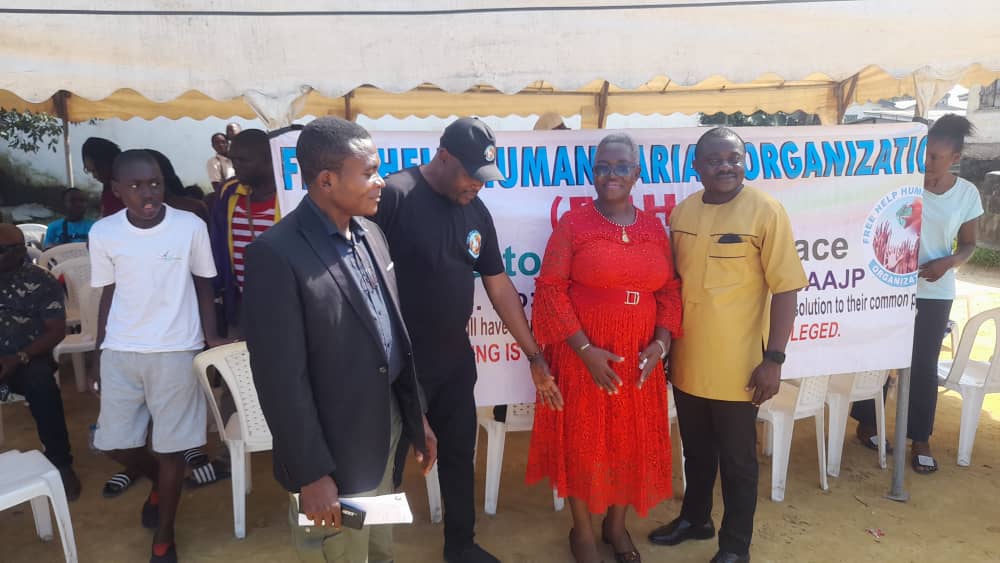
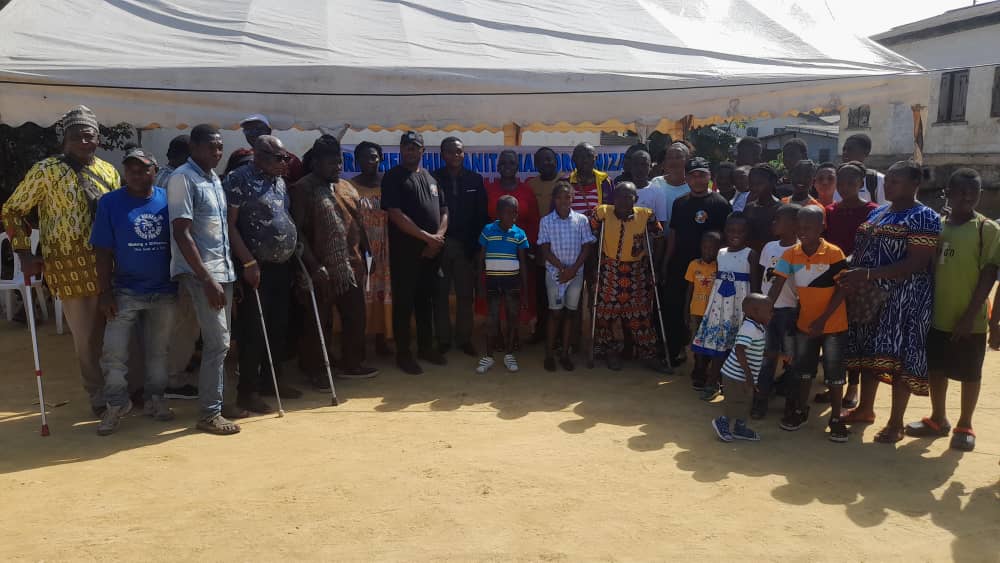
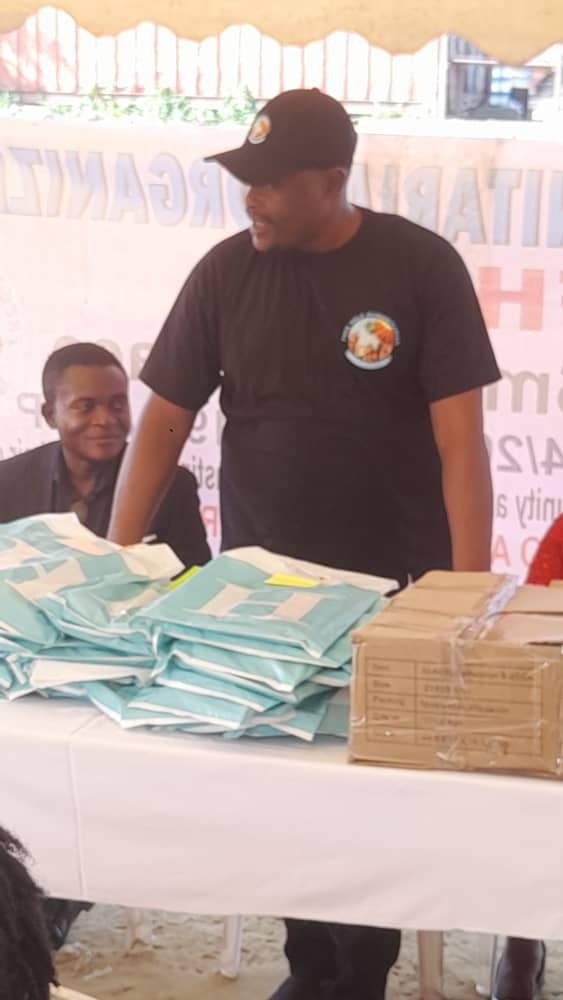
COMPONENTS OF THE ORGANIZATION A) Education/training programs
B) Humanitarian
C) Health
D) Advocacy/lobbying
E) Peace Education
F) Nutrition
